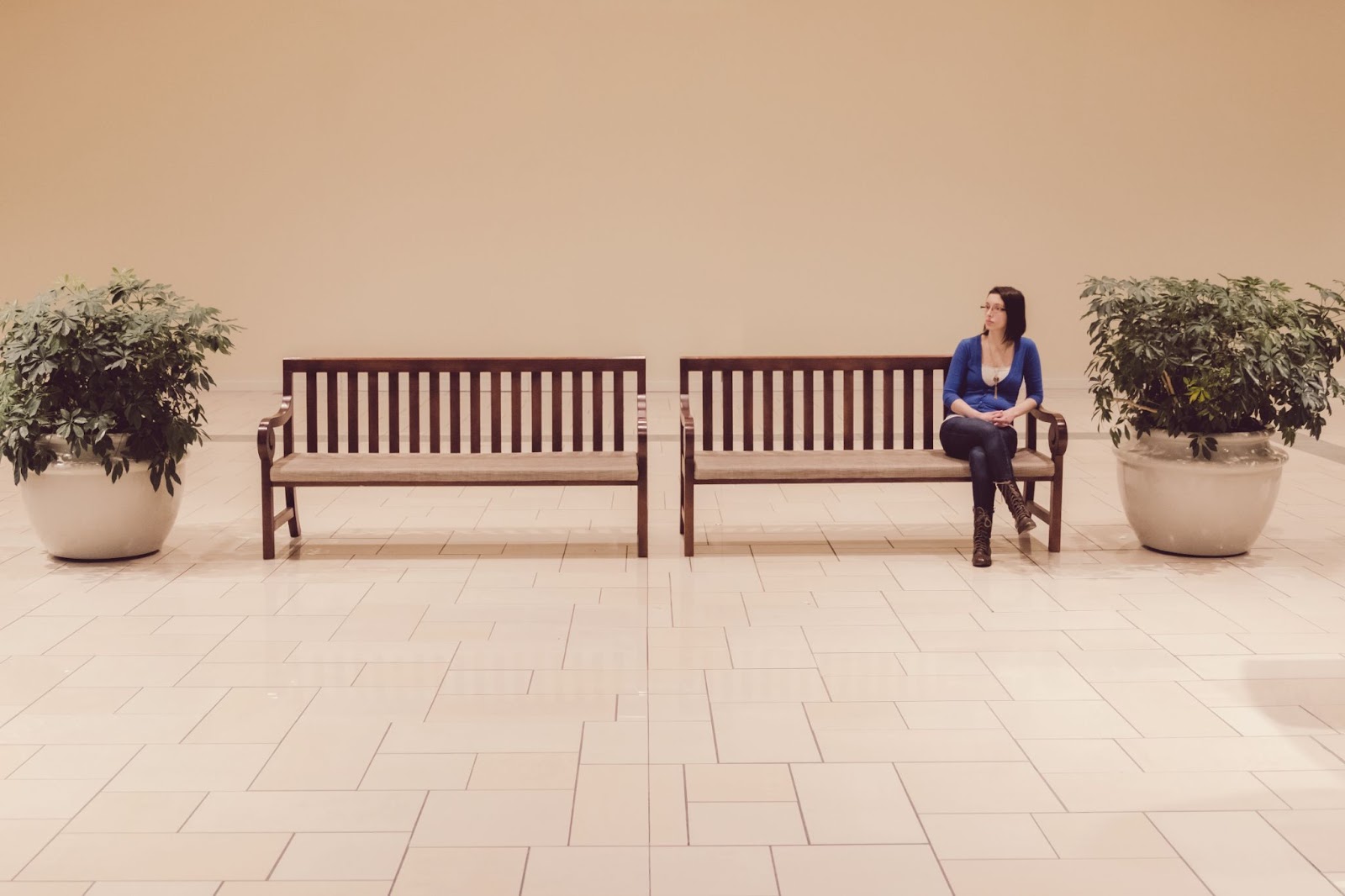The Silent Epidemic: Staying Connected To Combat Social Isolation & Loneliness
Social connection is so important. Human evolution can be traced back to our primate roots, and we flourish when we are within a social group.
Author:Daniel JamesReviewer:Karan EmeryMay 01, 2024569 Shares19.6K Views

Social connection is so important. Human evolution can be traced back to our primate roots, and we flourish when we are within a social group. Even introverts need to connect with other people sometimes. Social connection can be linked to well-being and physical and mental health. You don't have to be a complete social butterfly either, even a few hours a week of social time can be enough to give you some benefit.
But what if you're isolated or otherwise disconnected from the social life of humanity? Social isolation is a major issue, and many people unfortunately have no friends or social contact. Some even refer to it as the Silent Epidemic due to the consequences of social isolation. These can include negative impacts across multiple areas of life and lead to issues such as mental illness, physical illness, or other poor outcomes for life.
However, there is good news. If you're socially isolated, there are things you can do to get into the mix and connect with other humans. This informative article will share how you can combat the Silent Epidemic, and find connection and social activity with others. Read on to learn more.
Some Impacts of Loneliness and Social Isolation
Before we share some ways you can get connected and find social connections, it's important to note the ongoing impacts that loneliness and social isolation can have. We'll detail this so you can understand the impacts and get motivated to make a change.
Social isolation can activate your body's stress response, which can lead to muscle tension and pain, digestive issues, and chest pain. This can compound as you become reluctant to socialize due to these symptoms. It can also cause insomnia and disrupted sleep, leading to other issues. You'll be less active and productive during the day if you're having poor-quality sleep.
If you feel lonely and disconnected, you might adopt unhealthy habits such as binge eating, drinking alcohol or using other substances, binge-watching television, or overspending.
Now you can see the negative impacts of social isolation and loneliness, let's discuss some ways you can get out and about and connect with other people.
Seek Out Your Peers
If you’re studying an ABSN onlineor an on-campus course and you're feeling isolated, it’s worth reaching out to your peers and fellow classmates to connect. Studying will force you to interact with other people during classes, group assignments, and other work that you will need to complete to obtain a degree. This is perfect if you're younger and socially isolated, as it can be a way to enter the workforce, where you will definitely forge connections and friendships. Even if you're a mature-aged student entering study in your later years, an online or on-campus course will mean you'll meet people with similar interests, and a common goal, leading to connection and possible friendship.
Join a Board Games Club
Board games have come a long way from what you remember as a child - Monopoly and Trouble. Millions of people around the world enjoy board and card gamesas a hobby. Some popular, more modern board games include Catan, Exploding Kittens, 7 Wonders, and more. If you live in a populated area, there is a local board game club or meetup. These games are a great way to find social connection through a shared activity, as you focus on the game while chatting and having fun. This is an excellent way to forge connections, as the game acts as an interface to facilitate social connection and can be less daunting than just meeting people with nothing to do together. Have a look on Meetup.com or search Facebook for some gaming groups near you.
Join a Walking Club
This is an excellent way to combat social isolation and get some exercise at the same time. Most large cities and towns will have walking or running groups, often organized online or via social media. People get out for a walk, weather permitting, and a chat while they walk. By connecting with others through a shared physical activity, you're being kind to your body, your mind, and your spirit. Many people create lasting friendships through walking groups and begin to catch up with people from the group for lunches, dinners, and other social activities.
Join a Book Club
Chances are, if you're naturally introverted and prefer to stay home, you may enjoy burying your nose in a book. Books offer a healthy escape, but they're no replacement for genuine social connection. By joining a book club, you get to explore new books and meet regularly to discuss them. Like other suggestions in this article, the shared activity of discussing a book with a group of like-minded people can help create relationships and improve well-being. Again, you can find a book club online, or your local library can assist. Visiting the library can be an excellent way to get out of the house, discover new books, and also meet people. Check the noticeboard at your local library.
Volunteer
If you're socially isolated and not working or working intermittently, then volunteering with a local charity, non-profit organization, church, or other community group can be an excellent way to get out of the house. Volunteering has many benefits. For one, you'll get an increased sense of self-esteem by helping others, giving you a boost to your mood and well-being.
Altruistic acts genuinely make you feel better. In addition to this, you'll meet other people - other volunteers and the staff organizing the activities. Many people find friendship and connection through their workplace, and a volunteering opportunity is indeed a workplace. A bonus to this is if you've been out of the workforce due to your isolation, volunteeringis a great experience to put on your CV and can often lead to employment, either at the place you volunteer or elsewhere.
Turning Acquaintances into Friends
Let's get to the next part of this article. Let's say you've joined some groups or otherwise have made some connections. How do you turn these into genuine friendships that provide all the benefits of true social connection? Here are a few suggestions.
Extend an invitation to someone at a group you've joined. Suggest a walk in the park or a quick lunch or coffee with a coworker or acquaintance. A low-pressure activity gives you a chance to get to know each other better.
Focus on common interests or activities. You might have an easier time connecting with acquaintances if you have similar hobbies.
Offer your time or ask for help from someone. If an acquaintance needs help moving into a new house or painting or fixing up a room, consider helping out. Also, if you need help with something, you can casually mention that you're looking for some help with a project or task at home. This helps create time with someone where conversation can flow naturally.
A Compelling Conclusion
This enlightening article has shared all about social isolation, loneliness, the impact on well-being and health, and how to overcome it. Try some of the ideas in this article and see how they can improve your life.

Daniel James
Author
Daniel James is a distinguished gerontologist, author, and professional coach known for his expertise in health and aging.
With degrees from Georgia Tech and UCLA, including a diploma in gerontology from the University of Boston, Daniel brings over 15 years of experience to his work.
His credentials also include a Professional Coaching Certification, enhancing his credibility in personal development and well-being.
In his free time, Daniel is an avid runner and tennis player, passionate about fitness, wellness, and staying active.
His commitment to improving lives through health education and coaching reflects his passion and dedication in both professional and personal endeavors.

Karan Emery
Reviewer
I'm a research scientist interested in learning more about how neural activity influences and shapes human behavior. Project design and management, data analysis and interpretation, and the creation and implementation of testing tools are among my specialties. I enjoy coming up with new ideas and coming up with practical solutions to issues that are widely applicable. My colleagues would describe me as a driven, resourceful individual who maintains a positive, proactive attitude when faced with adversity. Currently, I’m seeking opportunities that will allow me to develop and promote technologies that benefit human health. Specific fields of interest include data analytics, biotechnology, and pharmaceuticals.
Latest Articles
Popular Articles

